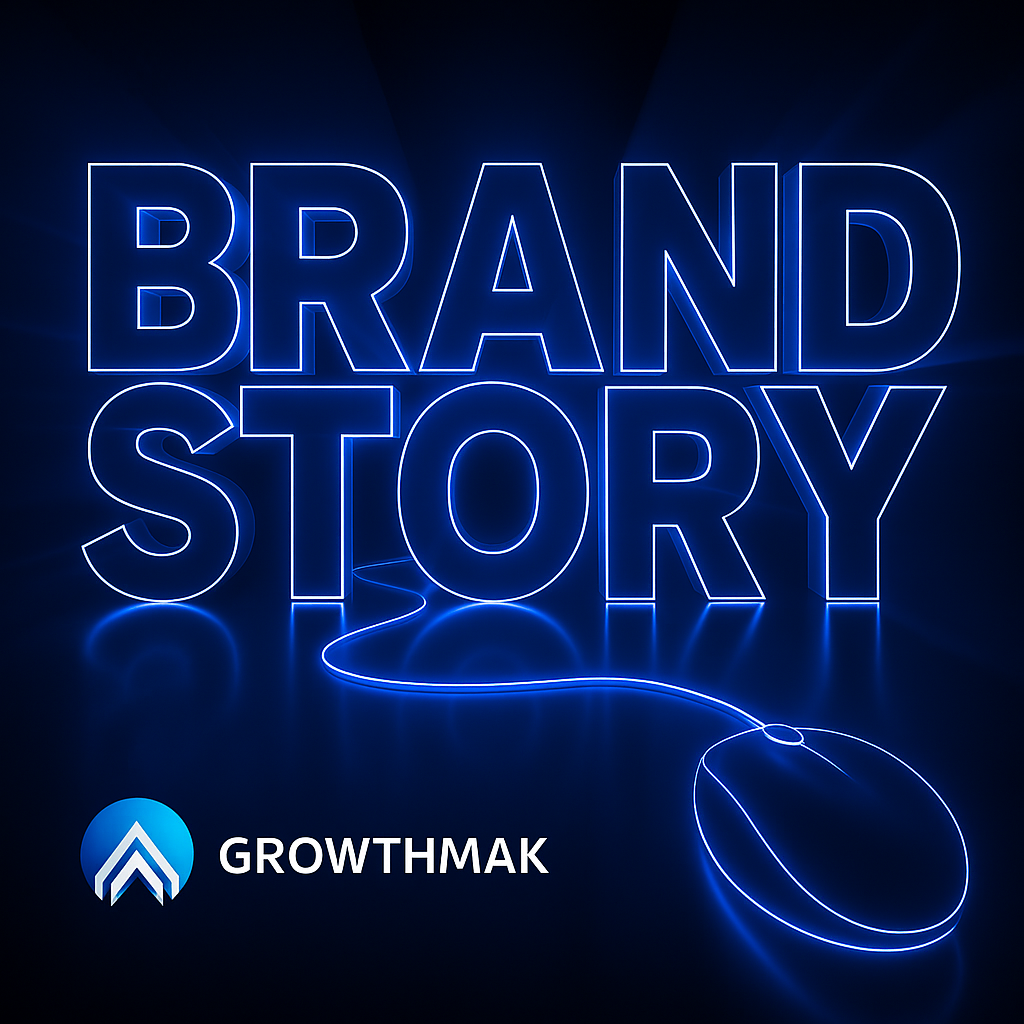AI in the B2B Workforce: Upskilling & Augmenting Teams for Future-Proof Business Expansion
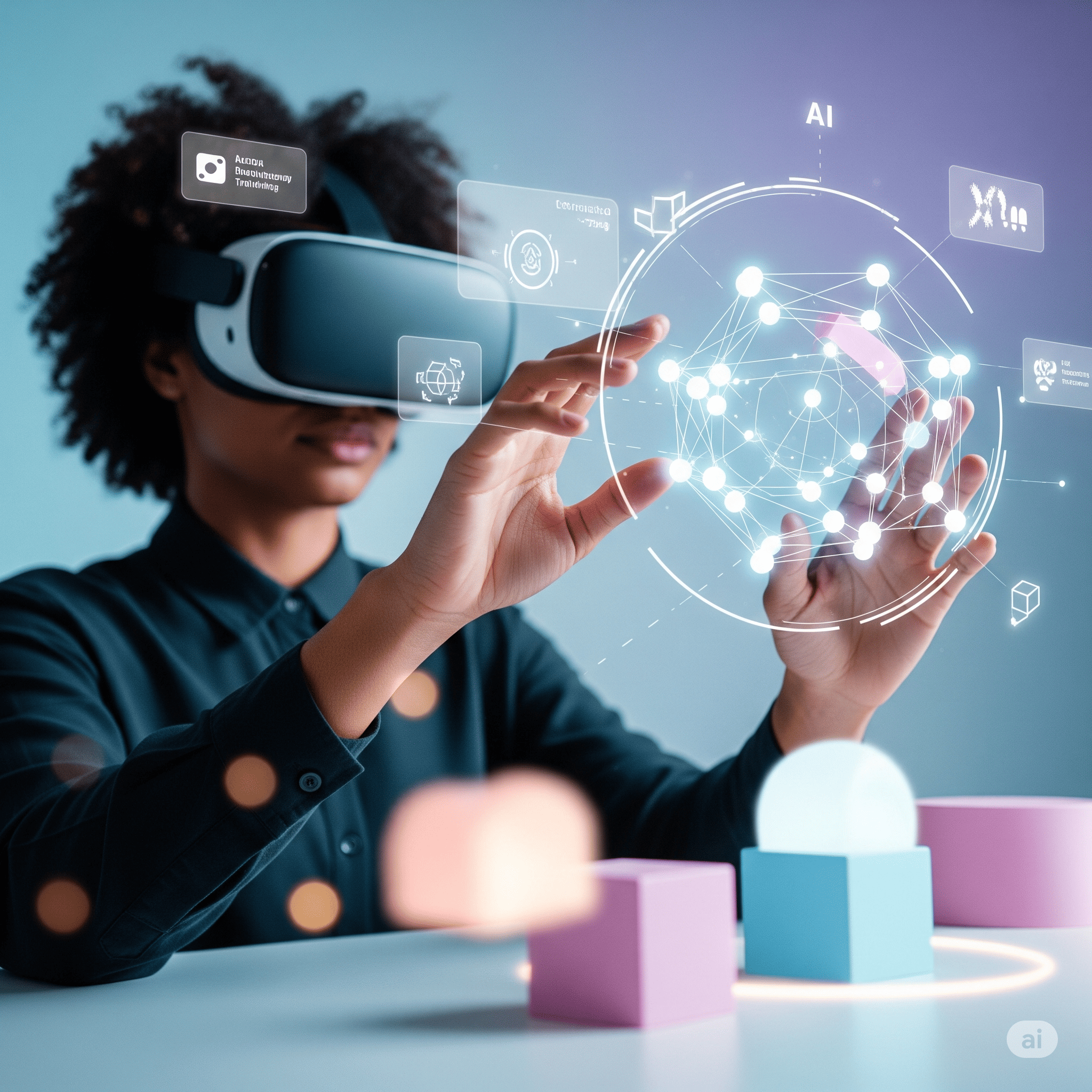
Let’s be honest: the B2B world is moving at warp speed. Just yesterday, we were talking about digital transformation; today, it’s all about artificial intelligence. And if you’re not actively thinking about how AI impacts your most valuable asset – your people – then you’re already falling behind. Forget the doomsday scenarios of robots replacing every job. That’s an old narrative. The real story, the one that’s reshaping successful B2B organizations, is about AI augmenting human capabilities. It’s about creating a workforce that’s smarter, faster, and infinitely more capable than ever before.
Think about it: Your B2B teams – sales, marketing, customer service, development, operations – they're all grappling with an explosion of data, increasingly complex client demands, and the constant pressure to deliver more with less. Traditional methods of training and development simply can’t keep up. The skill sets that were cutting-edge five years ago might be nearly obsolete today. This creates significant skill gaps that can bottleneck your growth and put you at a severe competitive disadvantage.
But here’s the good news: AI isn't just another tech tool to manage. It's the ultimate partner in solving this exact problem. It’s the engine that powers dynamic upskilling and intelligent augmentation, transforming how your teams learn, work, and innovate. Imagine your sales team closing deals faster because AI guides them to the right leads, or your marketing team creating hyper-personalized campaigns in a fraction of the time. This isn't science fiction; it’s the immediate reality for forward-thinking B2B businesses.
So, are your B2B teams ready for this new era? Are they equipped with the skills and augmented by the tools necessary to thrive? In this comprehensive guide, we're going to pull back the curtain on how artificial intelligence is revolutionizing workforce development. We’ll dive deep into practical strategies, data-driven insights, and real-world examples to show you how to leverage AI for B2B workforce upskilling and augmentation, leading to smarter operations, boosted productivity, and an undeniable competitive edge. At Growthmak.com, our expertise in AI-driven B2B growth marketing, custom software development, and AI enablement gives us a unique vantage point on this shift. We’re here to show you how to not just adapt, but to dominate.
Understanding the "Upskill & Augment" Imperative in B2B

You might be asking, "Why is this such a big deal now?" Good question. It boils down to two critical concepts: upskilling and augmentation, and their combined, undeniable power in the B2B landscape. If you're running a B2B business, ignoring these twin pillars is like trying to win a Formula 1 race with a bicycle. You'll simply be left in the dust.
Why Upskilling and Augmentation are Non-Negotiable
- The Rapid Pace of Change: Let’s face it, technology isn't just advancing; it's accelerating. New tools, platforms, and methodologies, especially in AI, are emerging constantly. This means the skills that propelled your team to success last year might already be losing their edge. Your workforce needs to continuously adapt and acquire new competencies, which is precisely where the imperative for reskilling B2B teams with AI comes into play. Without proactive upskilling, your team’s collective knowledge risks becoming a relic in a rapidly evolving market.
- The Unrelenting Quest for a Competitive Edge: In the cutthroat B2B world, every inch counts. Companies that embrace continuous learning and leverage AI to enhance their human capital gain a significant competitive advantage. They become more agile, more innovative, and more responsive to client needs. This isn't just about efficiency; it's about market dominance.
- Addressing Critical Skill Gaps: A recent report by the World Economic Forum indicates that by 2030, AI will require workers to change 70% of the skills used in most jobs. That's a staggering figure! These aren't minor adjustments; these are fundamental shifts. AI provides the tools to not only identify these critical skill deficiencies within your teams but also to bridge them efficiently and effectively. Whether it’s your sales team needing to master AI-driven CRM tools or your developers needing to understand AI integrations in custom software, these gaps are real and impactful.
- Boosting Employee Retention & Satisfaction: Here’s a secret many businesses overlook: employees want to grow. They want to feel valued and see a future with your organization. When you invest in their development through AI-powered training and offer them tools that make their jobs easier and more impactful, you dramatically boost morale and reduce turnover. It shows you’re committed to their long-term success, fostering a culture where top talent thrives. For more on building a strong team, check out our guide on how to build a high performing B2B marketing team for explosive growth.
Defining AI Upskilling vs. AI Augmentation
While often used interchangeably, it’s crucial to understand the distinct roles AI plays:
- AI Upskilling: This is about empowering your employees to use AI. It’s about teaching them to interact with AI tools effectively, understand the underlying principles of artificial intelligence, and develop entirely new skills that are relevant in an AI-driven world. Think of it as teaching your team to speak the language of the future. This includes practical applications like prompt engineering for generative AI, interpreting AI-driven data analytics, or even understanding the ethical implications of AI in business operations. It’s about making your people proficient with the new tools of the trade.
- AI Augmentation: This is where AI acts as a co-pilot, enhancing existing human capabilities and automating the repetitive, low-value tasks. It’s about making your employees smarter and more productive by offloading the grunt work. Examples include AI-powered sales assistants that qualify leads, intelligent marketing platforms that personalize campaigns at scale, or AI in HR for B2B that streamlines onboarding. This allows your human talent to focus on what they do best: strategic thinking, complex problem-solving, building relationships, and driving innovation. This isn't about replacing; it's about amplifying.
- The Synergy: The most profound impact comes when you combine both. Upskilling ensures your team can wield AI effectively, while augmentation frees them to apply those new skills to higher-value activities. It's a virtuous cycle: learn more, achieve more, innovate more.
The B2B Context: Unique Challenges and Opportunities
B2B operations aren't like B2C. We’re dealing with:
- Complex Sales Cycles: Longer, more intricate sales processes require deep understanding and personalized engagement. AI streamlines lead qualification and provides insights for stronger pitches.
- Data-Intensive Operations: From market research to client analytics, B2B generates mountains of data. AI can transform this raw data into actionable intelligence, driving smarter decisions.
- Personalized Client Relationships: Building trust and long-term partnerships is paramount. AI frees up time for human interaction and provides insights for hyper-personalized communication.
AI directly addresses these unique B2B demands, making it an indispensable asset for any business aiming for future-proof business expansion. It's not just a trend; it's a strategic imperative. For deeper insights into how AI transforms B2B marketing specifically, check out our article on The Future of B2B Marketing.
AI as Your Ultimate Upskilling Partner: Transforming Learning & Development
Now that we’ve established why upskilling and augmentation are crucial, let’s get into the how. And when it comes to transforming how your B2B teams learn and grow, AI isn't just a supporting actor – it's the lead. Forget those stale, one-size-fits-all corporate training modules. AI is making learning dynamic, personalized, and incredibly effective.
Personalized Learning Paths with AI
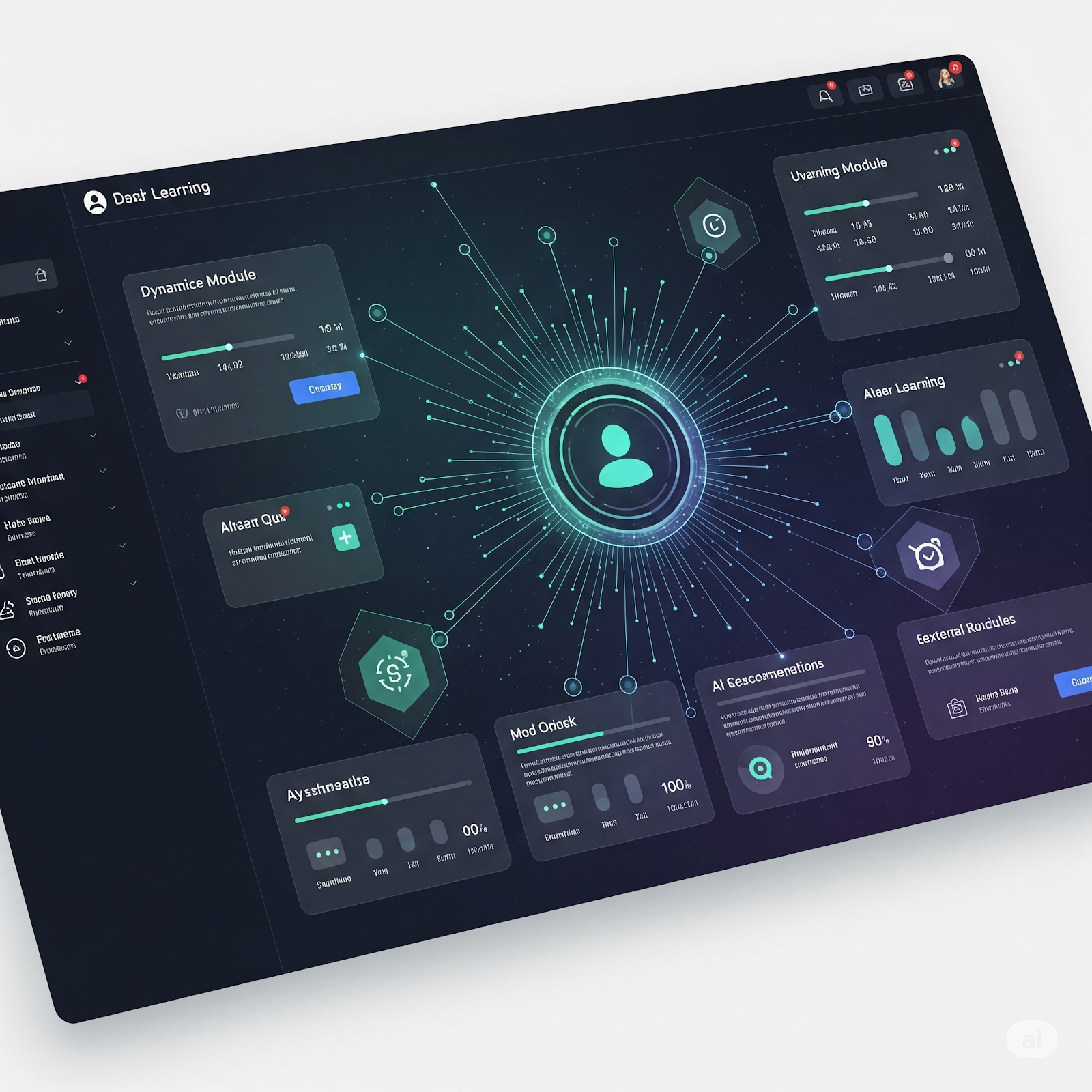
- The Old Way: Traditional training often involves generic courses that everyone sits through, regardless of their prior knowledge, learning style, or specific job role. The result? Disengaged employees, wasted time, and knowledge that doesn't stick. It’s like prescribing the same medicine to every patient in the hospital. Doesn't make sense, right?
- The AI Solution: This is where AI truly shines as an upskilling partner. AI-powered platforms, often referred to as Learning Experience Platforms (LXPs) or adaptive learning systems, are game-changers. They analyze vast amounts of data – individual employee performance, their existing skill sets, their learning pace, even their preferred content formats (videos, text, interactive simulations). With this information, AI crafts tailored, personalized learning paths.
- Pro Tip: Think beyond just course recommendations. An AI-driven LXP can identify a sales rep struggling with negotiation skills and immediately recommend micro-lessons, role-playing simulations, or even an expert mentor from within the company. For a marketing specialist, it might suggest advanced modules on predictive analytics if their current projects require deeper data insights. This level of granular personalization means every minute spent on learning is optimized for maximum impact.
- Impact: This isn't just about making learning nicer; it's about making it stick. Studies show that personalized learning can significantly boost engagement and knowledge retention. Employees are more motivated when they see the direct relevance of the training to their roles and career growth. Plus, when training is relevant, they retain it better.
- We often see B2B clients come to us for custom software development to build internal platforms. Imagine a custom-built LXP that integrates seamlessly with your existing HR and performance management systems, providing real-time data to refine those personalized learning journeys. That’s the kind of AI enablement that drives real business expansion.
On-Demand Skill Development & Micro-learning

- The Old Way: Needing a quick answer or a refresher on a specific topic often meant sifting through lengthy manuals, waiting for a training session, or bothering a colleague. In the fast-paced B2B world, that simply doesn't cut it. Time is money, especially when a client is on the line.
- The AI Solution: This is where AI-driven micro-learning shines. Imagine your team members having immediate access to precisely the information they need, right when they need it.
- AI-powered chatbots and virtual assistants: These aren't just for customer service anymore. They can act as internal knowledge hubs, providing instant answers to questions about product features, company policies, or even complex industry regulations. A sales development representative preparing for a call can quickly ask an AI assistant for a summary of a prospect's recent news, or a developer can get a quick explanation of a specific no-code platform feature.
- Bite-sized training modules ("Micro-learning"): AI can break down complex topics into short, digestible modules – often just 2-5 minutes long. These "knowledge nuggets" can be videos, interactive quizzes, or concise summaries. When your account manager needs a refresher on a new pricing model before a client meeting, they don't need a 2-hour webinar. They need a 3-minute explainer video that covers the essentials. AI ensures these are readily available and perfectly indexed.
- Pro Tip: Implement a system where employees can rate the helpfulness of micro-learning content. AI can then use this feedback to prioritize, refine, or even generate new content, ensuring your knowledge base is always fresh and relevant. The beauty of AI here is its ability to constantly learn and improve the learning experience based on actual usage data.
- Real-World Application: Consider a new product launch. Instead of a week-long training, employees get a series of daily micro-lessons delivered via a dedicated app, supplemented by an AI chatbot for immediate Q&A. This not only accelerates time-to-competency but also significantly boosts employee confidence. The fact that employees are 50% more engaged with microlearning courses, as reported by Software Advice, speaks volumes. It’s an effective way to drive continuous learning, something vital for future-proofing your B2B.
Immersive & Experiential Training with AI

Learning by doing. It's an age-old wisdom, right? But in the B2B world, "doing" often means engaging with high-stakes scenarios – a critical sales pitch, a complex customer issue, or handling sensitive data. Messing up in these situations can cost you big. This is precisely where AI-powered immersive and experiential training steps in, offering a risk-free sandbox for your teams to master their craft.
- The Old Way: Traditional role-playing often feels artificial. The feedback can be subjective, and scaling it across a large B2B team is a logistical nightmare. How do you give every sales rep dozens of realistic, varied customer interactions without burning out your trainers or annoying your top performers? You don't, usually.
- The AI Solution: AI brings a new dimension to experiential learning through simulations, virtual reality (VR), and augmented reality (AR). These technologies, powered by sophisticated AI algorithms, create incredibly realistic training environments where your employees can practice, fail, and learn without real-world consequences.
- Sales Pitch Perfectors: Imagine a new B2B sales development representative (SDR) practicing their opening pitch against an AI persona trained on hundreds of real customer objections and personalities. The AI can dynamically adapt its responses based on the SDR’s tone, word choice, and confidence. It’s not just about memorizing a script; it's about learning to think on your feet. The AI records the session, analyzes body language (if using camera input), intonation, and content, providing immediate, objective feedback that a human coach simply couldn’t. Research by ValueSelling Associates found that companies integrating AI into sales coaching saw 3.3 times greater year-over-year growth in sales team quota attainment and a 56% reduction in sales cycles when compared to those using AI alone. That’s a game-changer for your revenue targets.
- Customer Service Scenarios: For your customer service teams, AI simulations can recreate a wide array of challenging customer interactions – from an irate client demanding a refund to a complex technical support query. The AI can even simulate different customer emotions, forcing agents to adapt their communication style. The system then scores their performance, highlighting areas like empathy, problem-solving, and adherence to company protocols. This significantly reduces the learning curve and boosts agent confidence before they face real customers.
- Complex Technical Operations: For teams involved in custom software deployment, network management, or even operating complex machinery, AI-powered VR/AR simulations can provide hands-on training in a virtual environment. Think about training field engineers on a new piece of B2B equipment. Instead of flying them to a physical site, they can use VR to virtually assemble, troubleshoot, and repair it, with AI guiding them step-by-step and flagging errors. This saves massive amounts of time and resources, while ensuring a consistent, high-quality learning experience.
- Pro Tip: Look for AI simulation platforms that allow you to customize the scenarios with your own company data, product specifics, and customer profiles. The more relevant the simulation, the more effective the training. This means training your AI model for your specific methodologies and processes. Also, consider integrating these simulations as a mandatory step before any new product launch or service offering.
Proactive Skill Gap Identification & Forecasting
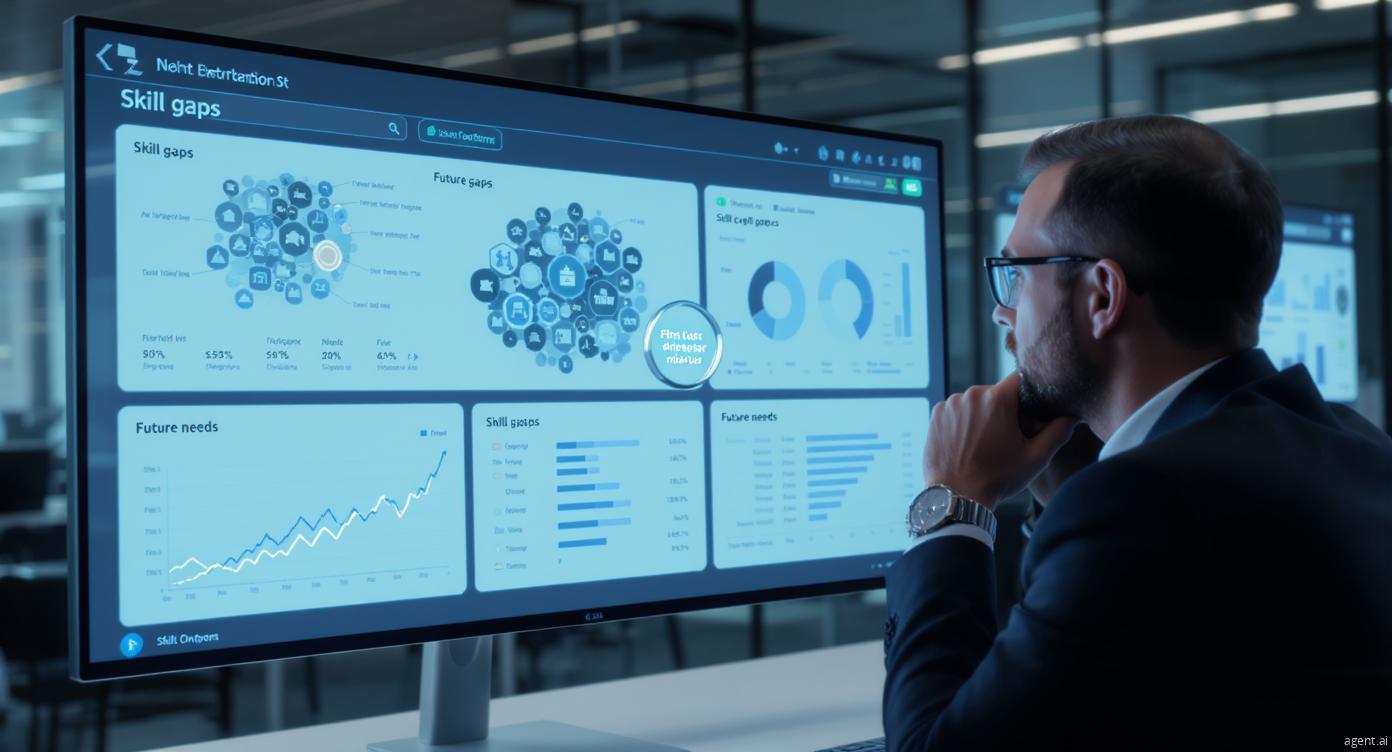
Here's a common problem in B2B: you realize your team has a skill gap only after it starts impacting your bottom line. It’s like waiting for your car to break down on the highway before you think about maintenance. Not ideal, right? The future of work demands a proactive approach, and AI is your crystal ball for foresight in talent development.
- The Old Way: Traditional skill gap analysis often relies on annual performance reviews, anecdotal feedback, or outdated industry reports. By the time you identify a gap, it’s already a problem – and closing it can be a costly, time-consuming scramble.
- The AI Solution: AI moves beyond reactive training by analyzing market trends, predicting future skill demands, and identifying emerging skill gaps within your workforce before they become critical business roadblocks. This is strategic workforce planning powered by intelligence.
- Data-Driven Diagnostics: AI can ingest and analyze massive datasets from various sources: internal performance metrics, industry reports, job market trends, competitor analysis, even publicly available information on emerging technologies. For instance, an AI system might notice a rising demand for "AI-driven demand generation" specialists in your industry. It then cross-references this with your internal team’s skill profiles (from HR systems, learning platform data, project assignments) and flags that your current marketing team lacks proficiency in this area.
- Predictive Analytics for Talent: By applying predictive analytics, AI can forecast which skills will be essential in 1, 3, or even 5 years down the line for various roles within your B2B organization. This allows HR and leadership to invest in relevant training proactively, ensuring your talent pipeline aligns perfectly with future business objectives. For example, if your growth marketing strategy is shifting more heavily towards AI and automation (which it should be!), AI can predict the need for specialists in AI-driven analytics or prompt engineering, prompting you to start upskilling your current team now. According to a Hirebee.ai report, by 2025, 80% of organizations will use AI to forecast skills gaps. This isn't just a nice-to-have; it's becoming standard practice for high-growth businesses.
- Strategic Workforce Planning: This proactive identification allows for targeted interventions. Instead of broad, generic training, you can implement highly focused programs for specific teams or individuals. It also informs your hiring strategy – do you need to hire for a critical new skill, or can you develop it internally through a structured AI-powered upskilling program? This integrated approach to talent development is crucial for crafting a long-term B2B growth strategy for enduring success.
- Pro Tip: Don't just rely on external data. Feed your AI system with internal data on project success rates, employee feedback, and even customer satisfaction scores related to specific team outputs. This rich, internal context makes the AI's predictions about skill gaps incredibly accurate and actionable for your unique business needs. This means you can truly understand B2B Growth Marketing Metrics and link them directly to your team’s capabilities.
AI for Workforce Augmentation: Supercharging B2B Team Performance
So far, we've talked about how AI helps your team learn better. But what about how it helps them do better, right here, right now? This is where AI moves from being a trainer to becoming an integral part of your team, a silent partner that elevates every single member's output. We’re talking about AI workforce augmentation B2B – supercharging human capabilities and boosting your bottom line.
Automating Mundane Tasks & Boosting Efficiency

- The Reality: Let's face it, many roles in B2B are still bogged down by repetitive, soul-crushing tasks. Data entry, scheduling meetings, drafting routine emails, generating standard reports – these are necessary evils that steal valuable time from your highly-paid, skilled employees. It's like having a race car driver also responsible for changing their own tires mid-race. Inefficient, to say the least.
- The AI Solution: This is where AI-powered business automation steps in as your ultimate efficiency booster. Robotic Process Automation (RPA), intelligent automation, and smart workflow tools can take over these mundane tasks entirely.
- Sales & Marketing Efficiency: Imagine your sales team freed from manually updating CRM records after every call or sifting through endless spreadsheets to identify high-potential leads. AI can automatically log interactions, score leads based on engagement signals, and even route them to the right sales rep. HubSpot's 2023 data showed that sales professionals save over two hours daily using AI for routine tasks like data entry and scheduling. That’s two hours they can now spend on high-value activities: building relationships, strategizing, and closing deals. For your marketing team, AI can automate email personalization at scale, schedule social media posts, and analyze campaign performance in real-time, allowing them to focus on creative strategy rather than manual execution. If you're looking to elevate your lead generation, our Ultimate Guide to B2B Lead Generation dives into how AI is making that process even smoother.
- Operational Streamlining: Beyond sales and marketing, consider operations. AI can automate invoice processing, reconcile financial data, manage inventory levels in real-time, and even handle routine IT support requests. This doesn't just save time; it drastically reduces human error, leading to cleaner data and more accurate forecasting.
- Pro Tip: Don't automate for automation's sake. Identify the tasks that are most repetitive, most prone to error, and most hated by your employees. Start there. The biggest efficiency gains come from alleviating the tasks that drain morale and productivity. Also, ensure your AI automation integrates seamlessly with your existing tech stack. This reduces friction and maximizes adoption. Need to automate your B2B workflows for explosive growth? AI is the answer.
Enhanced Decision-Making with AI-Powered Insights
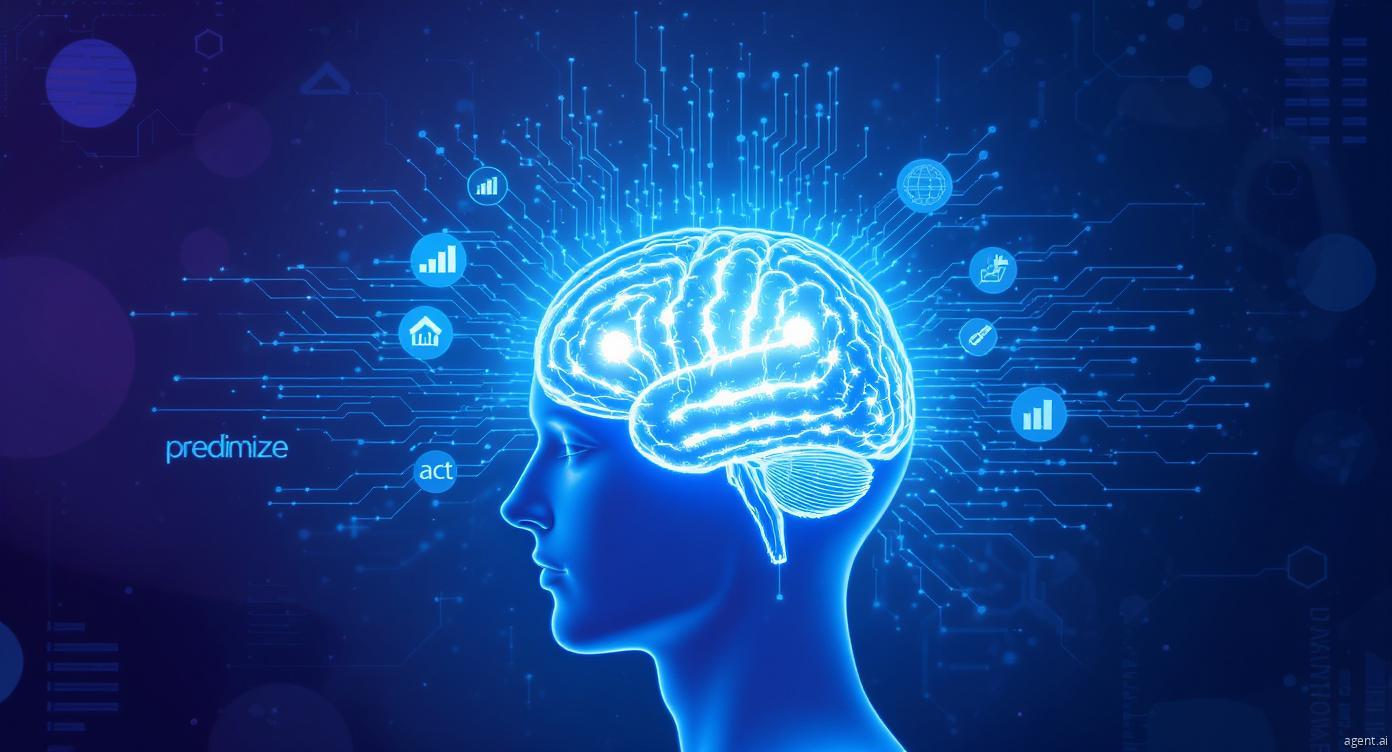
In the B2B world, every decision, big or small, has significant repercussions. From which market to enter to which lead to prioritize, your ability to make informed decisions is paramount. The problem? We're drowning in data. Terabytes of information from CRM systems, marketing automation platforms, web analytics, and external market research. Trying to manually sift through all that is like trying to find a needle in a haystack – blindfolded.
- The Old Way: Decision-making often relied on gut feelings, limited data sets, or slow, retrospective analysis. By the time you understood a trend, the opportunity might have passed. This led to missed opportunities, suboptimal resource allocation, and a constant game of catch-up.
- The AI Solution: AI transforms data overload into actionable intelligence. It processes vast, complex datasets at lightning speed, identifies hidden patterns, predicts future outcomes with remarkable accuracy, and presents insights in an easily digestible format. This means your B2B decision-makers aren't just looking at data; they're looking at prescriptive insights that guide their next move.
- Predictive Lead Scoring & Prioritization: For your sales and marketing teams, AI can analyze historical conversion data, buyer behavior, engagement levels, and even external intent signals to predict which leads are most likely to convert. This is a game-changer for B2B lead generation. Imagine your sales reps spending their precious time only on leads with a 70%+ chance of closing, rather than chasing every lukewarm prospect. A Harvard Business Review study found that companies using AI for sales can increase their leads by over 50% and reduce call time by 60-70%. That’s incredible ROI. Our article on AI-powered B2B Sales Forecasting goes into detail on how to achieve this.
- Market Trend Analysis & Strategic Planning: AI can monitor vast amounts of external data – news, social media sentiment, competitor activities, economic indicators – to identify emerging market trends, shifts in buyer behavior, or new competitive threats. This foresight allows B2B leaders to adjust their strategy proactively, exploit new opportunities, or mitigate risks. For example, AI can predict the demand for a new B2B SaaS feature before your competitors even think about it.
- Personalized Product Recommendations & Upselling: Based on a client's past purchases, usage patterns, and industry trends, AI can recommend relevant complementary products or services. This isn't just about selling more; it's about adding real value to your clients, deepening relationships, and maximizing customer lifetime value.
- Pro Tip: Don't just implement AI tools; ensure your teams are trained to interpret and act on the insights. The most sophisticated AI in the world is useless if your team doesn't understand how to translate its findings into actionable strategies. Foster a culture of data literacy alongside AI adoption. For more on this, check out our Practical Guide to Data-Driven B2B Marketing.
AI-Powered Collaboration & Communication

In the B2B world, effective collaboration and seamless communication aren’t just buzzwords; they’re the lifeblood of successful projects, client relationships, and internal efficiency. But let’s be real, managing multiple teams, across different time zones, dealing with endless email threads, and trying to keep everyone on the same page can feel like herding cats. This is where AI steps in as your ultimate communication co-pilot, improving cross-functional teamwork and breaking down those notorious organizational silos.
- The Old Way: Information often gets trapped in individual inboxes or specific department channels. Critical decisions might be buried in lengthy meeting minutes that nobody reads. Miscommunication abounds, leading to delays, rework, and frustrated teams.
- The AI Solution: AI brings intelligence to your communication and collaboration platforms, ensuring information flows freely, efficiently, and intelligently.
- Intelligent Meeting Summaries: No more deciphering messy notes or trying to remember who said what. AI-powered tools can transcribe meetings in real-time, identify action items, assign tasks, and even summarize key decisions. For B2B sales teams with long sales cycles and numerous meetings, McKinsey's B2B Pulse Survey found that over 40% of respondents in industries with long sales cycles are excited about AI for meeting support, recognizing the significant administrative time savings. Imagine your entire team having access to concise, AI-generated summaries of client calls or internal strategy sessions, ensuring everyone is on the same page, instantly.
- Smart Knowledge Bases: AI transforms chaotic internal wikis and document repositories into dynamic, easily searchable knowledge hubs. Employees can ask natural language questions, and AI will pull up the most relevant documents, internal FAQs, or even snippets from past conversations. This drastically reduces the time spent searching for information and ensures consistency in responses, especially for customer-facing teams.
- Language Translation Tools: For global B2B operations, AI-powered real-time translation tools break down language barriers in virtual meetings and written communications. This fosters smoother international collaboration and expands your team's ability to engage with diverse markets.
- Predictive Communication Assistants: Some advanced AI systems can even analyze communication patterns and suggest the best channels or times to reach a specific colleague or client for optimal engagement. They can flag potential communication bottlenecks or suggest a follow-up if an important message hasn't been actioned.
- Pro Tip: Integrate these AI communication tools directly into your existing collaboration platforms (e.g., Slack, Microsoft Teams, project management software). This seamless integration drives adoption and ensures that AI is genuinely augmenting daily workflows, not adding another layer of complexity.
Unleashing Creativity & Innovation

You might think AI is all about logic, data, and automation. And you’d be right. But here’s the unexpected kicker: by taking care of the tedious, analytical, and repetitive tasks, AI actually frees up your B2B teams to be more creative, more strategic, and more innovative. It's like having a hyper-efficient assistant who handles all your admin, leaving you free to brainstorm the next big idea.
- The Old Way: Creativity often gets stifled by the sheer volume of mundane work. Marketers spend hours formatting reports instead of ideating campaigns. Product developers get bogged down in technical specifications rather than envisioning new features. The pressure to deliver on daily tasks often leaves little room for divergent thinking or exploration.
- The AI Solution: When AI handles the grunt work, human creativity can truly flourish. AI acts as a powerful brainstorming partner, a content accelerator, and an insight generator that sparks new ideas.
- AI as a Brainstorming Partner: Struggling with writer's block for that next big B2B content piece? Need fresh ideas for a new product feature or a unique lead generation campaign? Generative AI tools can instantly produce a multitude of concepts, headlines, ad copy variations, or even initial design mockups based on your prompts. You don't have to use them directly, but they can kickstart your brainstorming sessions, providing diverse starting points you might never have considered. Think about a marketing team using AI to generate 50 different blog post titles or campaign angles in minutes, then picking the most promising ones to refine. This "divergent thinking" capability helps teams "think outside the box" and find unexpected solutions.
- Content Generation & Optimization: AI can draft initial blog posts, email sequences, social media updates, and even sales proposals. This drastically reduces the time spent on initial content creation, allowing your copywriters and marketers to focus on refining the message, adding human empathy, and ensuring brand voice consistency. For B2B marketers, AI has become a critical tool. One study showed that 76% of marketers are using generative AI to create content or write copy, with 85% reporting that AI improved content quality. This is a powerful leverage point for your B2B growth marketing efforts.
- Rapid Prototyping & Iteration: In software development, especially with no-code platforms, AI can assist in generating code snippets, suggesting database structures, or even helping to design user interfaces. This significantly accelerates the prototyping phase, allowing teams to test ideas rapidly and iterate based on feedback. This is a game-changer for no-code custom software development in B2B.
- Data-Driven Creative Insights: AI analyzes customer feedback, market trends, and performance data to identify what resonates most with your target audience. This insight doesn't stifle creativity; it informs it. Your creative teams can then develop campaigns that are not only innovative but also backed by data, leading to higher engagement and better ROI.
- Pro Tip: Encourage experimentation. Set aside dedicated "AI exploration" time for your teams. Provide them with access to generative AI tools and challenge them to find new ways these tools can assist their creative processes. The goal isn't to replace creative thinkers, but to empower them with AI copilots.
Strategic Implementation: Integrating AI into Your B2B Workforce
So, you’re convinced AI is the future of your B2B workforce. That’s great! But the leap from "idea" to "implementation" can feel daunting. This isn't just about plugging in new software; it's about a fundamental shift in how your business operates. The good news is, you don't have to overhaul everything overnight. A strategic, phased approach is key to successfully integrating AI for B2B workforce upskilling and augmentation.
Start Small, Think Big: A Phased Approach
- Don't Boil the Ocean: Trying to implement AI across every department simultaneously is a recipe for overwhelm and failure. Instead, identify your biggest pain points or areas where AI can deliver immediate, measurable impact. Is it lead qualification in sales? Content generation in marketing? Or perhaps streamlining customer support?
- Pilot Programs: Choose one or two specific teams or functions for an AI pilot program. This allows you to test the waters, iron out kinks, and gather success metrics on a smaller scale. If a pilot project in sales enablement demonstrates a significant increase in qualified leads (say, a 15% boost in 3 months), that success story becomes your internal champion for broader adoption.
- Scale Incrementally: Once a pilot is successful, leverage those learnings and expand AI integration gradually to other departments or more complex processes. This builds confidence, gathers internal advocates, and ensures a smoother transition for everyone involved. Remember, even small wins can build momentum for business expansion.
Cultivating an AI-Ready Culture

- Address the Elephant in the Room (Fear of Replacement): Be transparent with your employees. Emphasize that AI is a tool designed to assist and empower them, not replace them. Frame AI as a way to eliminate boring, repetitive tasks, freeing them up for more creative, strategic, and fulfilling work. When people understand that AI human collaboration B2B is the goal, resistance melts away.
- Leadership Buy-in and Sponsorship: This is non-negotiable. If leadership isn't visibly championing AI adoption, it won't succeed. Leaders need to communicate the vision, allocate resources, and participate in training themselves. Their enthusiasm sets the tone for the entire organization.
- Continuous Training & Education: AI is constantly evolving. Your training programs shouldn't be a one-time event. Implement ongoing workshops, access to online courses, and internal communities where employees can share best practices and learn from each other. Make proficiency in AI tools for skill development B2B a part of ongoing professional development plans. For more on strategic AI adoption, consider our guide A Strategic Approach to AI Enablement in B2B.
Data Governance and Ethics
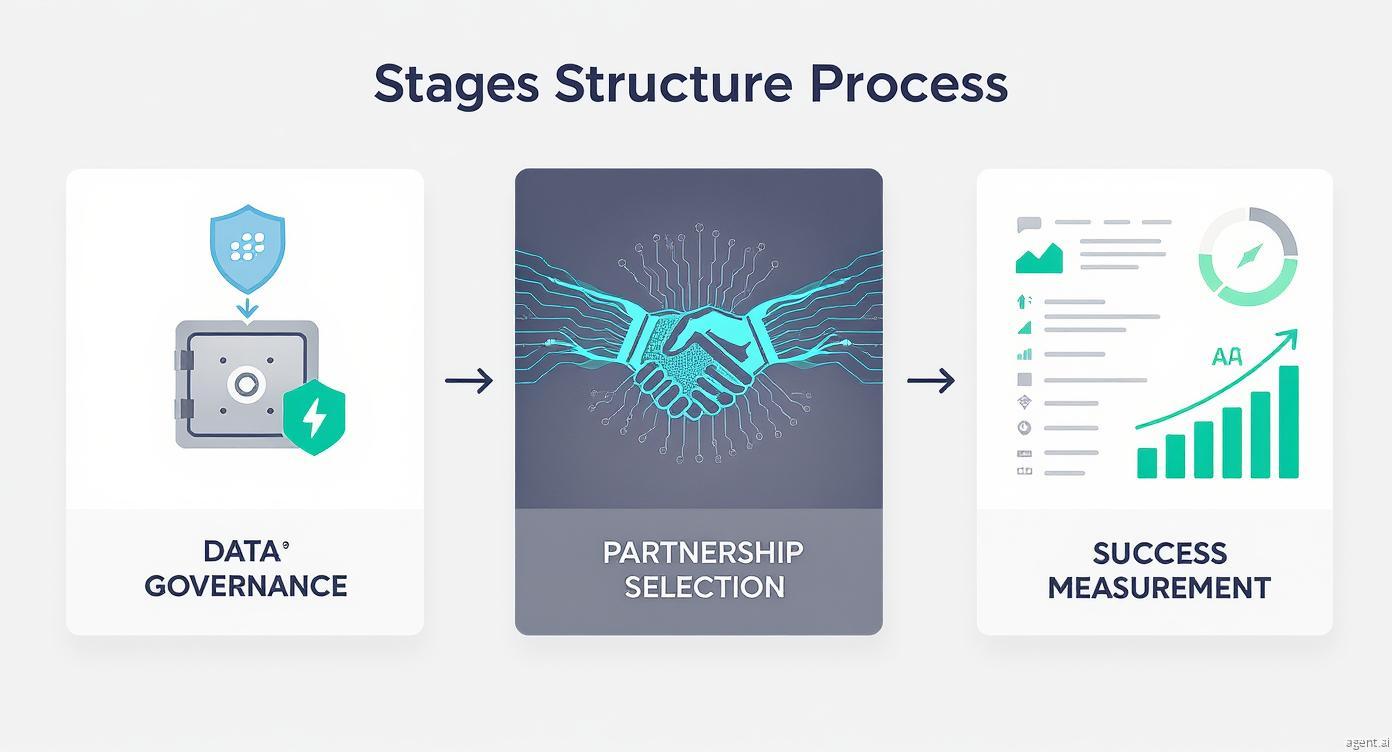
AI is only as good as the data it's fed. And in the B2B world, data isn't just information; it's proprietary, sensitive, and often regulated. Ignoring data governance and ethical considerations is like building a skyscraper on quicksand – it’s destined to collapse.
- The Foundation of AI: High-Quality Data: Garbage in, garbage out. For AI to provide accurate insights and effective automation, it needs clean, accurate, and relevant data. Invest time in data cleansing, standardization, and ensuring your internal data sources are reliable. This is critical for everything from AI for sales and marketing upskilling B2B to customer service improvements.
- Privacy and Security are Paramount: Your B2B clients entrust you with their data, and your employees share their performance metrics. Robust data security protocols and strict adherence to privacy regulations (like GDPR, CCPA, etc.) are non-negotiable. Implement strong access controls, encryption, and regular security audits. Transparency about how AI uses data builds trust with both employees and clients.
- Transparency and Bias Mitigation: AI models can inherit biases present in the data they’re trained on. This is a critical ethical consideration. Be aware of potential biases in algorithms, especially those affecting HR decisions (e.g., hiring, promotions) or sales targeting. Regularly audit your AI systems for fairness and transparency. Understand why an AI made a certain recommendation to ensure it aligns with your company's values and legal obligations.
- Pro Tip: Establish an internal AI governance committee. This cross-functional team (including representatives from IT, legal, HR, and relevant business units) can define policies, oversee implementation, and address ethical concerns as they arise. This proactive approach ensures responsible AI adoption.
Choosing the Right AI Solutions & Partners
The AI landscape is vast and rapidly expanding. Choosing the right tools and partners can make or break your implementation success. Don’t just jump on the latest trend; find what truly fits your B2B needs.
- Assess Your Specific Needs: Before looking at solutions, clearly define the problem you're trying to solve. Are you looking to improve lead quality, automate content creation, enhance customer support, or accelerate software development? Your specific goals will dictate the type of AI solution you need, whether it's an off-the-shelf platform or a bespoke system.
- Evaluate Scalability and Integration: Any AI solution you implement must be able to scale with your business growth. Can it handle increasing data volumes and user numbers? More importantly, can it seamlessly integrate with your existing CRM, ERP, marketing automation, or HR systems? Patchwork solutions lead to headaches.
- Growthmak Your AI Enablement Partner: This is precisely where Growthmak.com steps in. We don't just offer services; we offer expertise in AI enablement. We help B2B businesses navigate this complex landscape. Whether you need an AI-driven lead generation system, want to integrate AI into your growth marketing efforts, or require custom software development to build bespoke AI solutions, we’re here to provide tailored strategies and implementation. We ensure the solutions are not just cutting-edge but also perfectly aligned with your business objectives and current infrastructure. Our goal is to help you realize the full benefits of AI-driven growth.
- Pro Tip: Don't hesitate to ask for case studies or references from potential AI solution providers. Look for partners who understand the nuances of the B2B market and have a proven track record of delivering measurable ROI.
Measuring Success and Iterating
Implementing AI isn't a "set it and forget it" endeavor. It's an ongoing journey of refinement and optimization.
- Define Clear KPIs: Before you even begin, establish clear Key Performance Indicators (KPIs) to measure the success of your AI initiatives. These could include:
- Training Completion Rates & Proficiency Gains (for upskilling initiatives)
- Time Savings on Automated Tasks
- Increase in Lead Conversion Rates
- Reduction in Customer Service Resolution Time
- Employee Satisfaction Scores (related to AI tools)
- Revenue Growth (attributable to AI-driven insights)
- Continuous Monitoring and Refinement: Regularly review the performance of your AI systems. Are they delivering on their promises? Are there areas for improvement? Gather feedback from your teams, analyze the data, and be prepared to make adjustments. AI thrives on continuous learning, and so should your strategy. Iteration is key to maximizing the long-term impact of AI workforce augmentation B2B.
Conclusion: Embrace the Augmented Future, Today
The future of work isn’t some distant, abstract concept. It’s here, now, and it’s powered by artificial intelligence. We’ve explored how AI isn’t just a buzzword; it’s a strategic imperative for any B2B organization aiming for sustained growth and relevance. From personalized learning paths that close critical skill gaps to intelligent automation that frees up your team's most valuable asset—their time—AI is fundamentally reshaping how B2B teams operate.
The key takeaway is simple: AI doesn't replace human ingenuity; it amplifies it. It allows your employees to shed the mundane, embrace higher-value work, and unlock their full creative and strategic potential. By strategically leveraging AI for B2B workforce upskilling and augmentation, you're not just improving efficiency; you're building a resilient, adaptable, and high-performing team ready for any challenge the future throws their way. This is how you achieve true, long-term B2B growth strategy.
Don't let your competitors get ahead. The time to invest in your AI-driven growth marketing and enable your workforce is now.
Get Started with Growthmak Today!
Unlock your marketing potential with our expert team.





.svg)
.jpg)
